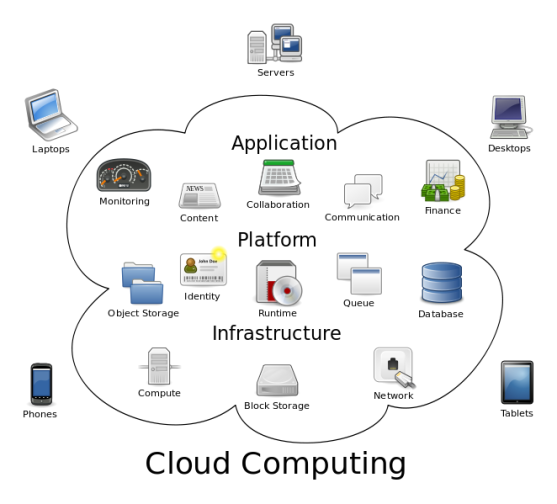Following Mr. B’s Advice to have a look at the latest technology trends for 2013, I ended up on Daniel Burrus page. He is CEO and founder of Burrus Research Associates and sees himself as Keynote Speaker, Business Strategist and Global Futurist.Talking about technology trends he mentions amongst others “Cloud Computing and Advanced Cloud Services”.
“(Cloud Computing and Advanced Cloud Services) will be increasingly embraced by business of all sizes, as this represents a major shift in how organizations obtain and maintain software, hardware, and computing capacity.”- Daniel Burru
Daniel Burru is not the only one, who sees Cloud Computing as the coming technology business trend. It-magazines like “Computerwoche”describe Cloud Computing as
“one of the current and most important trends in the Business IT”
What does Cloud Computing actually mean?
According to NIST (national institute of standards and technology), Cloud Computing is defined as the following:
“Cloud computing is a model for enabling ubiquitous, convenient, on-demand network access to a shared pool of configurable computing resources (e.g., networks, servers, storage, applications, and services) that can be rapidly provisioned and released with minimal management effort or service provider interaction. This cloud model is composed of five essential characteristics, three service models, and four deployment models.“
We all know clouds and their general advantages from private use. With help of iCloud or Google Drive we can easily store, manage and exchange our personal data like photos and music, either between our different mac products or from other computers.
What is the advantage of enterprise cloud computing?
Cloud Computing providers like IBM or amazon describe more flexibility, nearly unlimited scalability and lower costs as the main advantages of cloud computing.
Does cloud computing only have positive sides?
After various blogs and magazines: definitely not!
Spiegel online just warned in an article by Ole Reißmann of an observation of European businesses and private users through the U.S.
Susan Bard, a business writer and CEO of Cypress Technologies describes in her blog 5 disadvantages of Cloud Computing. Besides the security issues of data volume, she mentioned amongst other the reliability of your internet connection and the dependence of your cloud computing vendor as disadvantages.
If you want to know more about Cloud Computing and how it works in detail just click here for a German version and here for the English.
What do you think of Cloud Computing? Is it the future app to run your business?



